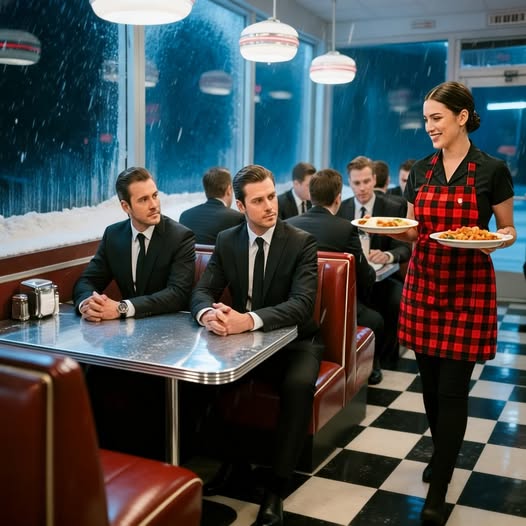The gates of the Whitmore estate were not merely metal and stone; they were a barrier between two worlds. On one side stood Charles Whitmore, a man whose life was measured in acquisitions and solitude. On the other stood Elena, whose life was measured in hungry days and the weight of her baby sister on her back. When she slipped through the opening gate, her desperate offer—”Sir, do you need a maid?”—was almost lost to the wind. But Charles heard it, and as he turned, he saw the mark. A small, pale crescent on her neck, an exact replica of the one that had once graced his sister, Margaret.
This was not a coincidence; it was a collision of past and present. He invited Elena and the baby, Lily, inside, his mind reeling with the impossible possibility. The girl worked diligently in his home, a silent, living question mark in the opulent halls. Charles studied her, his inquiries gentle but persistent, digging for clues to a truth he scarcely dared believe. The fragile silence was shattered by a ghost on the telephone, a voice whispering that Margaret lived. The message compelled Charles to unearth the past in his library, confessing to Elena that the mother she knew was a fiction, and that she was, in fact, his flesh and blood.
Elena grappled with this new reality, a foundation of sand shifting beneath her feet. Then, the story delivered its own proof on a storm-lashed night. The woman at the door was drenched and frail, but her eyes held a story Elena’s soul recognized instantly. This was Margaret. This was her mother. The embrace they shared was not just between a mother and daughter, but a bridge across lost years, mending a family torn apart by fear and secrecy.
The estate itself seemed to breathe a sigh of relief. The cold marble halls now echoed with Lily’s laughter and the soft, healing conversations of a family rediscovering itself. Charles, the once-lonely billionaire, found his greatest fortune not in a bank, but in this second chance. He and Margaret built a legacy of support for others, a foundation born from their own painful history. Years later, Elena would stand before a crowd, the memory of her desperate plea at the gate now a powerful prologue to her life of purpose. As she tucked Lily into bed that night, surrounded by the family she had unknowingly been searching for, she understood that the birthmark on her neck was not just a quirk of birth. It was a homing beacon, and it had finally led her home.


